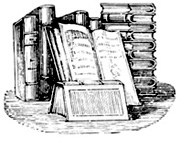
Is Providence College All It’s Cracked Up to Be?
A CLOSER LOOK
Providence College, nestled in a gritty area of Providence, Rhode Island, is distinct among the nation’s two hundred plus colleges and universities that are identified as Catholic. Its primary significance since its inauguration in 1917 is that it is the only college or university in all of North America that is owned and operated by the Order of Preachers Friars (i.e., the Dominican Fathers). The Dominicans, a bastion of scholarship dating back to the Order’s founding in the 13th century, are the one religious community able to singularly claim as their own, St. Thomas Aquinas — widely heralded as the patriarch of Catholic theological and philosophical scholarship, whose writings have undoubtedly served as the foundation, beacon, and compass for the intellectualization of Catholic orthodoxy throughout the centuries.
At Providence College (its colloquial title is PC), signs of the Dominican Order are found throughout the campus, including the newly erected St. Dominic Chapel, replete with stained-glass windows featuring the images of Dominican saints, situated across from a grotto adorned with a Blessed Virgin statue, and a dormitory aptly named Aquinas Hall. Despite the lack of any stunning architecture, the campus maintains a rather neat appearance (with the notable exception of many of the dormitories).
Further distinguishing the College is the vast clerical presence on its campus, lending the campus an even greater vintage appearance. The College claims to have the largest religious presence of all of the Catholic colleges on the East Coast, with a total of 57 Dominican Friars and Sisters as faculty and administrators. Add to this at least two diocesan clergy who hold full-time faculty posts. The Friar, donned in his traditional white habit with large rosary beads around the waist, is considered to be Providence College personified.
Much of the College’s prominence has emerged by way of the positive acclamations of many a college guide: Beyond the standard U.S. News and World Report guide (by whom the College is ranked second in the northeast among regional institutions that concentrate on undergraduate studies), Providence College has received perhaps its most prestigious notoriety from the College Guide of the conservative National Review of some 10 years ago, which exalts the College’s self-proclaimed emphasis on its Catholic, Dominican identity, and also on its traditional core curriculum that accentuates Western traditions. Known as “Development of Western Civilization,” all students are required to complete a total of 20 credit hours of this standardized course during their first and second years. The College has also been acclaimed by neoconservative periodicals such as Crisis, First Things, and the National Catholic Register.
The conservative Intercollegiate Studies Institute (ISI), in collaboration with National Review, now produces Choosing the Right College: The Whole Truth About America’s Top Schools (ISI College Guide for short), which examines famous American colleges such as Harvard, along with select other institutions of learning that function outside of the prevailing liberal “orthodoxies” and which are less “politicized.” The ISI College Guide (2002 and 2004 editions) lauds Providence College for its “education for life” (rather than just for career), where Western tradition is “presented in its fullness” without the trendy trappings of multiculturalism and other pedagogical fads. However, the ISI College Guide perhaps unwittingly calls into question its claim as well as that of the College Administration by stating, “Providence would take its [Western Civ] curriculum up several notches if it simply assigned Homer’s Iliad, say, rather than snippets of it culled from a textbook,” which “would give reason for taking PC’s academic claims more seriously.”
You May Also Enjoy
Pushers of political correctness now desire, if not demand, something called "deep diversity" — that is, eliminating all signs of "whiteness" from campuses across the country.
If you want to continue teaching on college campuses, it's best to hold to the politically correct version of the genesis of homosexual orientation.
Rob Henderson defines "luxury beliefs” as “ideas and opinions that confer status on the upper class at very little cost, while often inflicting costs on the lower classes.”

